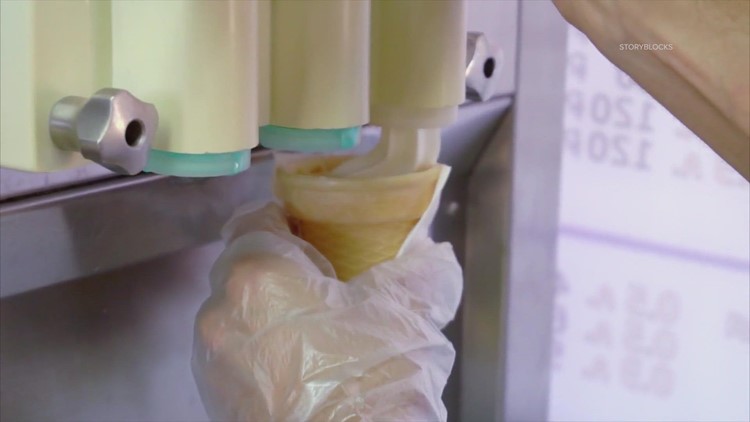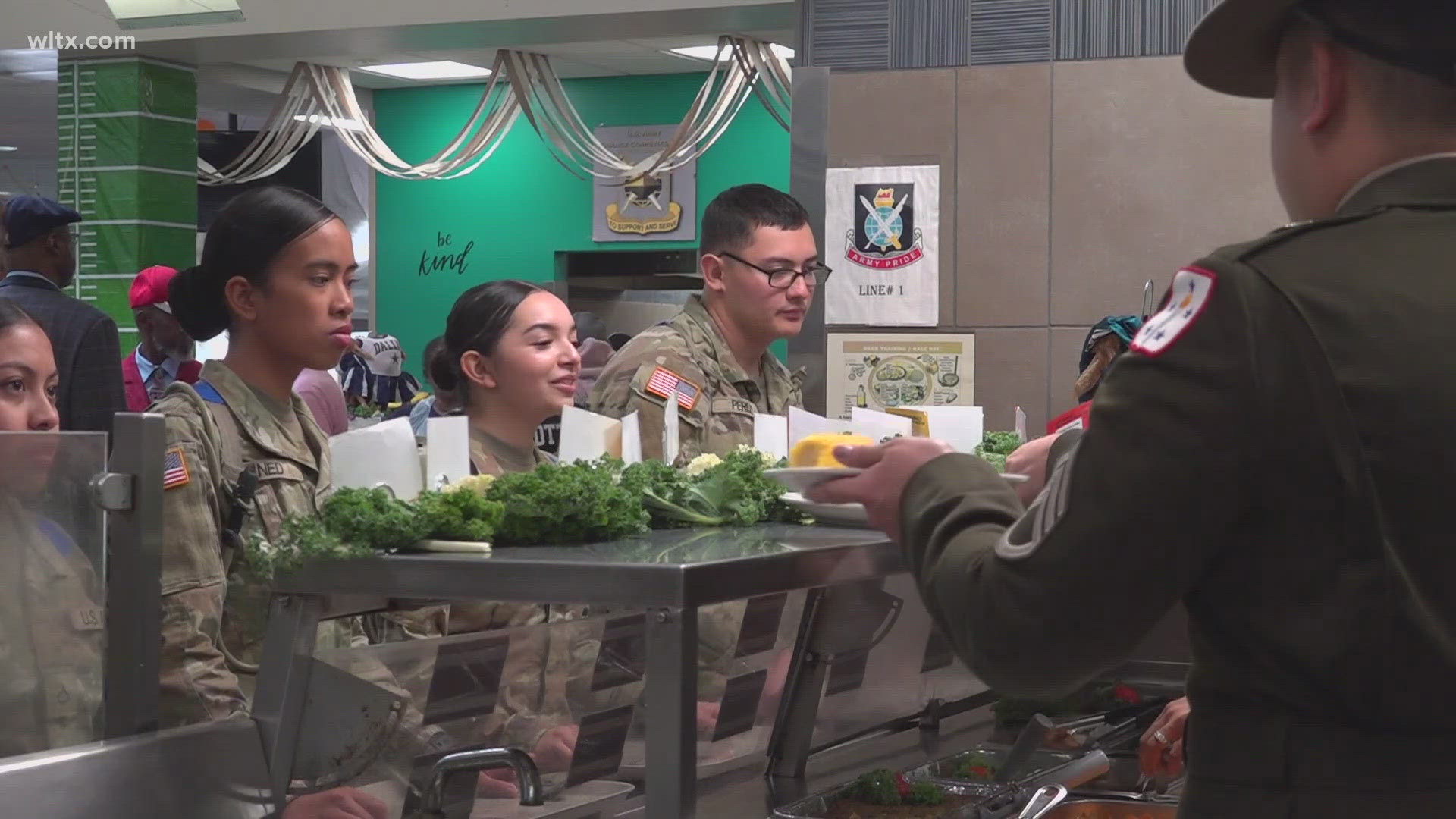NEW YORK — You'll have no trouble buying burgers at McDonald's. But ice cream? That's another story, as correspondent David Pogue discovered at one franchise's drive-through. "I'm sorry," he was told, "we actually don't have any ice cream at the moment."
Broken McDonald's ice-cream machines have become a national punchline. This past week, 19% of them were down in San Diego, and 28% in New York City. That's according to McBroken.com, a website designed to track the machines in real time.

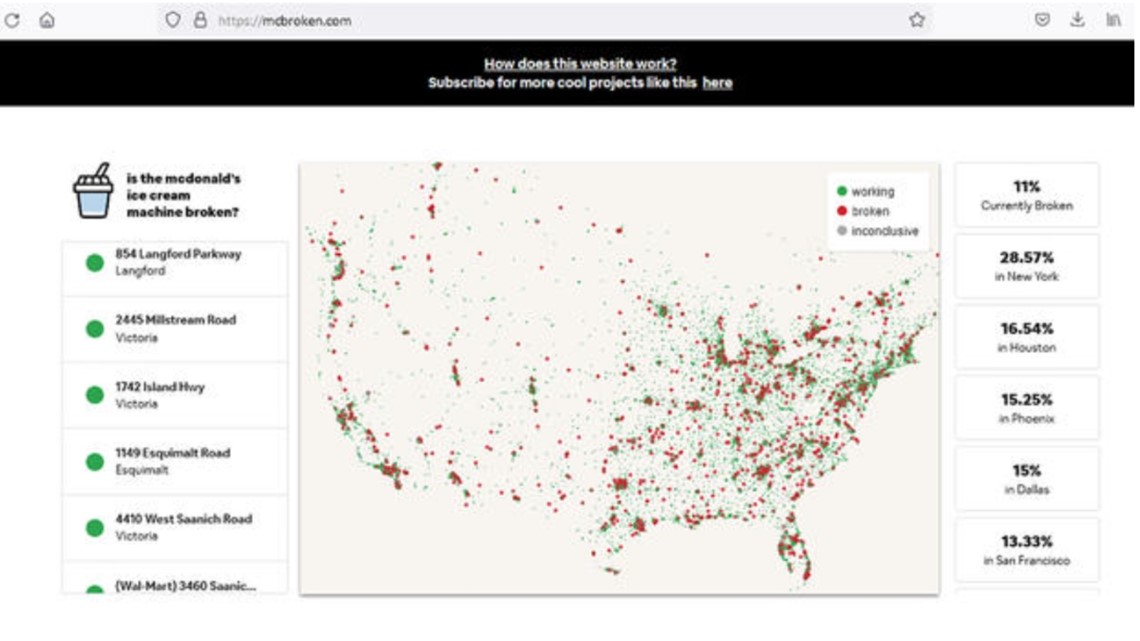
McDonald's says that rumors of their breakdowns are greatly exaggerated, but even they have poked fun at the problem. In 2020, the company tweeted:
For decades, Illinois-based Taylor was the exclusive supplier of soft-serve and shake machines to McDonald's. Jeremy O'Sullivan got to know these machines in 2011, when he and his partner, Melissa Nelson, founded a line of frozen-yogurt kiosks. They call the Taylor machines finicky and overengineered.
O'Sullivan showed Pogue a typical error message on a unit like the McDonald's soft-serve machine: "'R BRL > 41F after SL'? Just tell me what BRL means!"

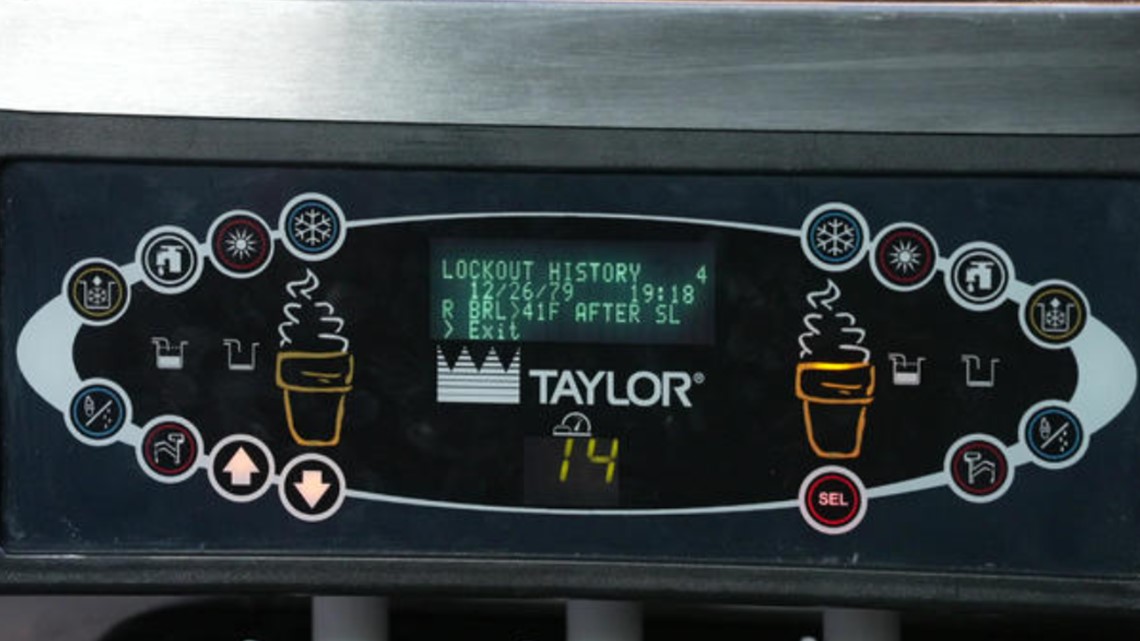
Now, just because a machine is down doesn't mean it's actually broken. It might just be going through its mandatory, daily, four-hour pasteurizing sequence. "Each step in that process has to be done and executed in a certain amount of time, or the whole thing fails, and it needs to restart," said O'Sullivan.
Pogue asked, "I'd come in the morning and it would say, what?"
"Heat cycle fail."
O'Sullivan even claims that the fragile design is intentional, so Taylor can rake in repair fees. He said, "A McDonald's employee is supposed to pick up the phone, call a Taylor technician, 'Hey, please come out. We really wanna pay Taylor another $500 for repairs.'"
Well, that may not be especially true. Taylor declined an on-camera interview, but said by email: "Taylor does not make any money off of servicing its machines. All repairs to Taylor machines are handled by a network of independent distributors."
Although that may not be completely true, either. Taylor charges those technicians for training costs, and about 25% of the company's revenue comes from selling replacement parts.
So, to help with the situation, O'Sullivan and Nelson came up with Kytch, a tiny computer that attaches to the front panel of the soft-serve machine. "It decrypts very complicated messages that your typical employee may not understand," Nelson said.

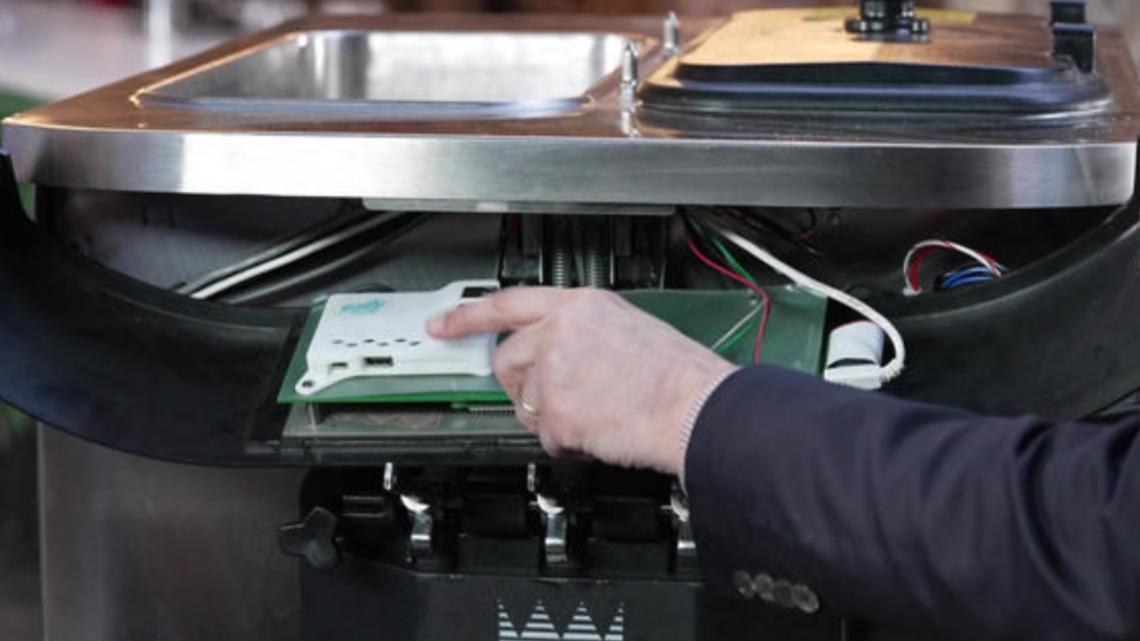
"So this would say, 'HPR > 41 SL,' what would the Kytch message say that's more helpful than that?"
"Maybe something as simple as, 'This hopper heated up because you left the lid off,'" O'Sullivan replied.
The Kytch device also offers some remote control. If the machine shuts down while the owner is at home, Kytch lets them know, and enables them to restart the machine via their phone.

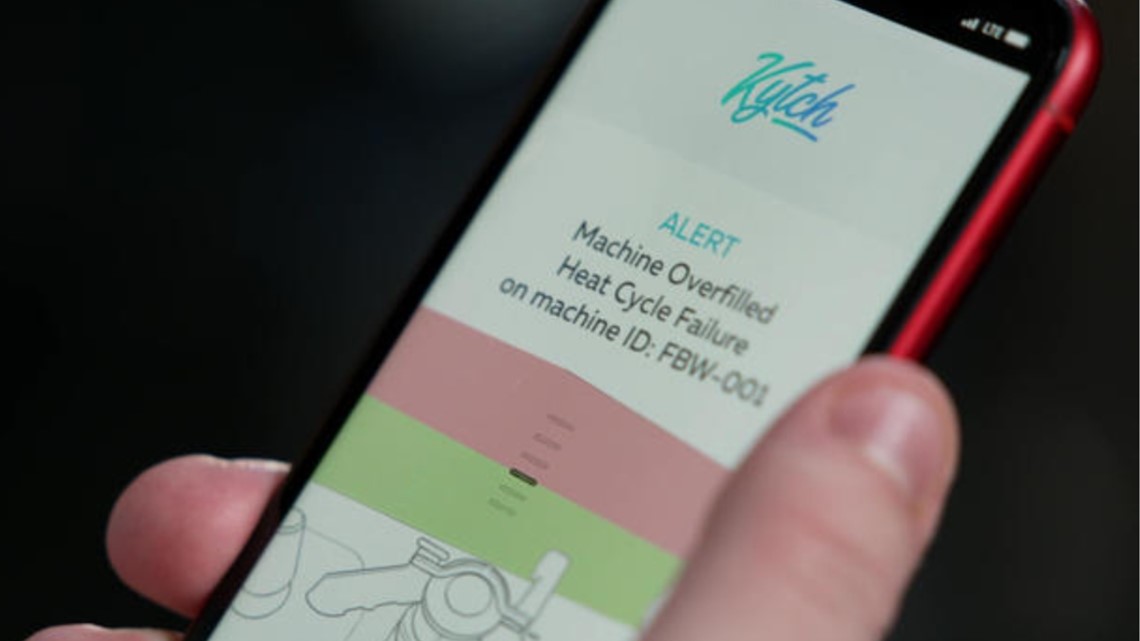
The founders say the Kytch add-on was a hit with McDonald's owners, and even got a thumbs-up from the head of the franchise owners' equipment team, who in 2020 told one gathering, "I really think this device can reduce complexity in your restaurants … and help drive cash flow by keeping your machines up."
But unbeknownst to Kytch, Taylor had been developing its own, similar device, and was studying the Kytch to mimic its features. One Taylor executive emailed, "So how can we do the same thing Kytch is doing?"
Then, in late 2020, McDonald's emailed the owners of all 13,000 franchises. According to O'Sullivan, "They said, 'Don't use Kytch.'"
"It essentially said that Kytch could cause serious human injury," Nelson added.
"How would that happen?" Pogue asked.
"Well, it can't," O'Sullivan replied.
The memo said that the Kytch remote-control feature could make the machine start running while someone was cleaning or maintaining it, endangering employees' fingers.
But that may not be exactly true, either. Nelson said. "All these dangerous parts that are inside the machine? When you remove the door, Kytch can't operate. Nothing can happen."
"The only danger that Kytch ever proposed was to Taylor's bottom line," O'Sullivan said.
After the McDonald's memo, business dried up, and Kytch shut down. The founders are now suing Taylor and McDonald's for millions of dollars.
Pogue said, "Reverse-engineering is not illegal; it's dirty pool, but it's not illegal."
O'Sullivan said, "There is a bunch of stuff in here that is super-illegal. You can't say something is dangerous when it's not dangerous."
Nelson added, "So, it's mainly about false advertisement, interfering with our business expectancy.'
McDonald's also declined an interview, but said by email that the Kytch device is unauthorized equipment which Kytch never submitted to McDonald's for safety testing. McDonald's calls the lawsuit "meritless"; and Taylor says it's "built on false allegations."
But until the lawsuits conclude, Taylor has put its own device on ice.
So, for now, we can all look forward to more social media moments of machines down.


